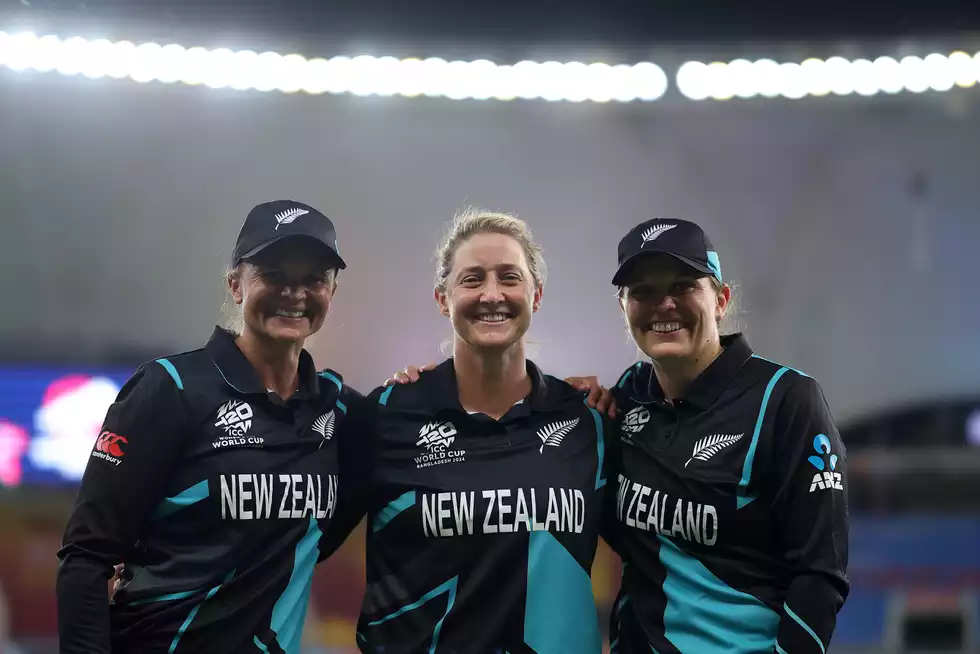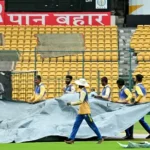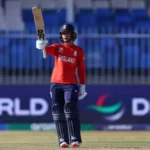
“Eight years,” Sophie Devine corrects, with pride in tone and a happy tear in the corner of her eye. That’s how long it has taken New Zealand Women to enter the semifinal again at a World Cup, one-day or a T20 – their barren run inclusive of a home World Cup in 2022.
The glimmer of hope that was beating hosts England in the Commonwealth Games bronze medal bout later that year quickly began to look like an anomaly with the two group-stage drubbings upfront at the hands of eventual finalists of the 2023 World Cup, Australia and South Africa. Even among the chasing pack, New Zealand were not able to keep pace. Holding back tears as she dissected their campaign at the halfway stage then, Devine said: “I’d much rather we went down swinging and got bowled out for 12 than not show our true ability and be thumped like that.”
In preparation for the next showpiece event, Devine-led New Zealand regrouped for some difficult conversations that culminated in the group establishing the brand of cricket they wanted to adopt going forward. Over the next 18 months leading up to the 2024 edition in the UAE, planning met execution. Were immediate results sacrificed at the altar of growth? Absolutely. A lot of the times New Zealand faltered to cross the finish line, but knew that sticking by what they believed in could have a handsome payoff at the end of it.
Cognizant of the fact that there were “probably not too many more of these World Cups left” for the senior group of Suzie Bates, Lea Tahuhu and Devine herself, fresh blood was injected and tasked with revitalising White Ferns’ cricket while learning the ropes from the best. Leigh Kasperek made way for young Eden Carson to flourish. Fran Jonas and Izzy Gaze were fast-tracked from U-19 set-up and Rosemary Mair thrust back immediately upon a six-month long rehab for back injury.
Devine herself walked the talk on that front, dropping herself down in a rejigged batting order to not just spread the firepower across but also let a 20-year-old Georgia Plimmer grow while partnering and learning off of experienced Bates. It’s a move that drew most criticism, but Plimmer’s maiden half-century in Australia just before the team left for the World Cup came as a timely vindication of their vision.
“Probably for the last 18-24 months, because we’ve had such a young group, what success looks like has been a little bit different in terms of it’s not always focusing on results,” Devine had said before New Zealand kicked off their World Cup campaign against India in Dubai earlier this year. “Absolutely, we want to win games of cricket – don’t get me wrong about that.
“But sometimes when you’ve got players that are so young and so inexperienced in their cricketing journey, especially their international cricketing journey, sometimes success is… about how have they grown as a player? What have they learned? And how have they developed, not just between World Cups, but between series? How have they grown at camps? And that’s been a big talking point for us, and reminding those players of the confidence that they should have from the work that they’ve put in.”
In between the two World Cups, New Zealand only won 5 of their 22 completed T20Is with a win ratio of 0.312 that’s the lowest among the 10 participating teams this edition in the said cycle. But it wasn’t panic stations just yet. New Zealand stuck to their guns, and planning, and came out firing all cylinders. Quite literally. And caught in the crossfire were the Indians.

